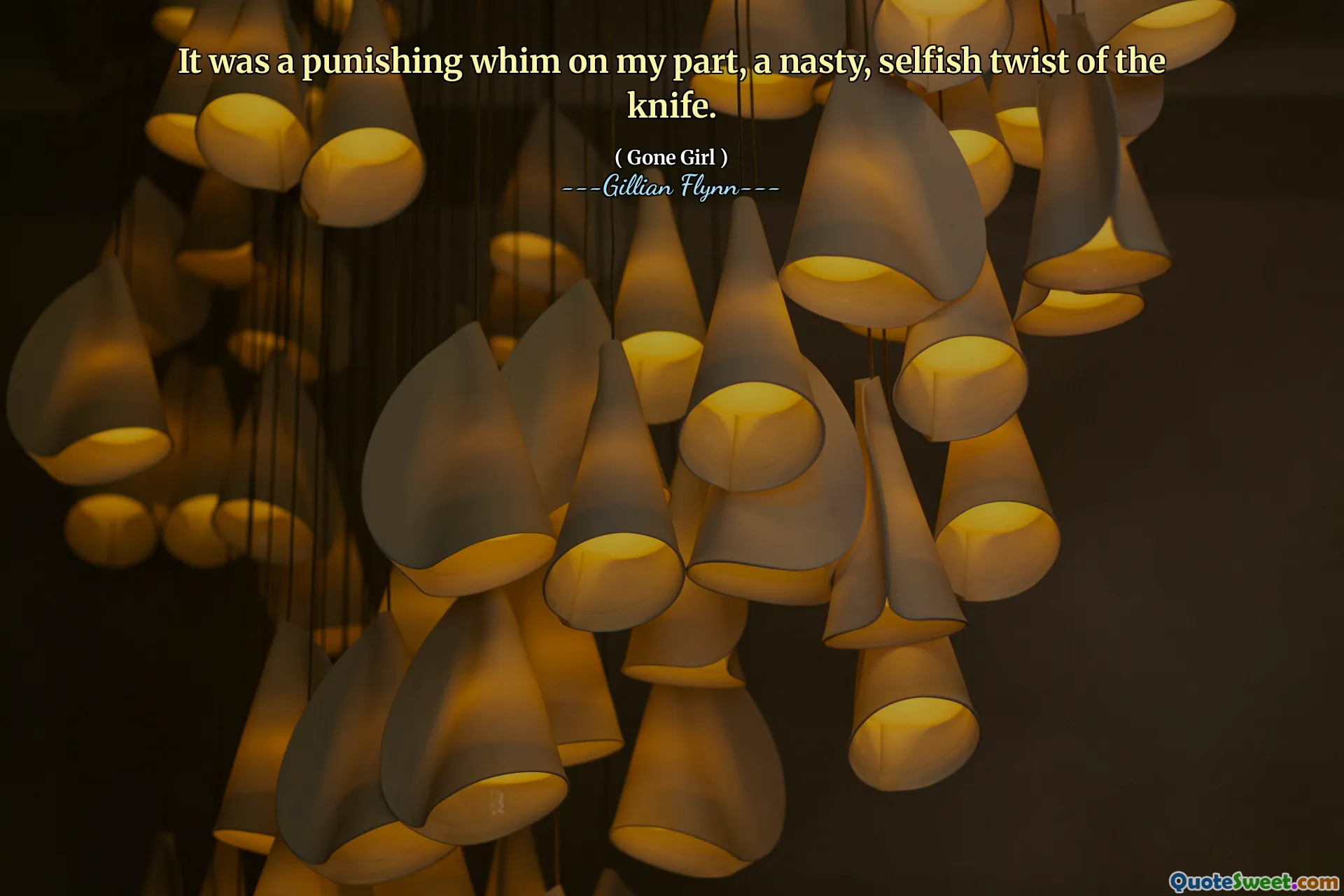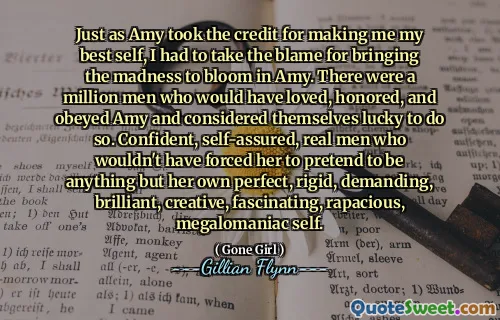
It was a punishing whim on my part, a nasty, selfish twist of the knife.
This quote encapsulates the idea of acting on impulsive desires that are inherently destructive, both to oneself and others. The phrase 'punishing whim' suggests an almost reckless spontaneous decision driven by emotion rather than logic. The use of 'nasty, selfish twist of the knife' conveys a deliberate act of self-harm or harm inflicted out of selfishness, emphasizing a moment of cruelty that is rooted purely in personal impulse. Such moments often occur when individuals act without foresight or concern for the consequences, choosing instead to satisfy a fleeting, perhaps vengeful, desire. This behavior reflects a darker aspect of human nature, where impulsivity overrides empathy or moral considerations. The act described symbolizes self-sabotage, where one's own actions serve to escalate pain or damage, highlighting how internal struggles and emotional turbulence can lead to destructive decisions. Recognizing such tendencies is essential for understanding the complexity of human motivations, especially in emotionally charged situations. It reflects the internal conflict and remorse that often follow such impulsive acts, reminding us that seemingly small whims can have profound and lasting repercussions. Ultimately, it suggests a reflection on the power of reckless choices and the importance of mindfulness, particularly when emotions threaten to override rational thought.











